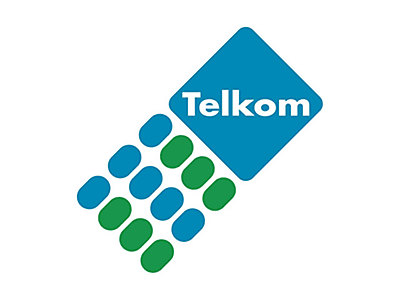Telkom Foundation
- Telkom Tower North, 152 Proes Street
- Pretoria, Gauteng
- SOUTH AFRICA
- +(012) 311 3911
Telkom Foundation Home
| Founded | 1998 |
| Founder | Telkom |
| Headquarters | Pretoria |
| Services | Education Social Development Employee Volunteering |
Organization Overview
The Telkom Foundation Trust is an autonomous legal entity of Telkom SA SOC Limited with its own Board of Trustees and Head of the Foundation. The primary objective of the Telkom Foundation is to contribute to the transformation of disadvantaged communities through sustainable development programmes. The Foundation acts in collaboration with the government, the private sector and education institutions to improve the quality of education in Science, Technology, English and Mathematics.
Background & History
The Telkom Foundation conducts all Telkom SA SOC Limited's corporate social investment initiatives. The Telkom Foundation was established in 1998 and registered as a trust in 2002 for the purpose. Over the years, the Telkom Foundation has made meaningful contributions to disadvantaged communities by providing to the improvement of their livelihoods through a range of structured programmes. The Foundation is committed to making meaningful contributions to these communities through investment in education, community relief programmes and employee volunteerism.
Management Team
Provide information on the organization management team.
Newsroom
Despatch school given new hope
By Melitta Ngalonkulu on March 17, 2016
R500 000 facilities boost inspires staff, pupils
Excitement bubbled over yesterday at a Despatch school where dismal matric results have been the norm. As Eastern Cape premier Phumulo Masualle unveiled a multimillion-rand ICT laboratory and a library, pupils expressed their hopes that they would now have a better chance at passing than their predecessors.
Unveiling the multi-faceted project at Zanolwazi Senior Secondary School, Masualle said it was time inequality in schools came to an end.
He said the technology that was being brought to the school was something many other pupils had available, at home and at school, while those at poorer schools did not have access to it.
“Inequality in schools should come to an end and today we have taken a step in equalising \ pupils,” Masualle said.
“I hope they will appreciate the instruments they have been provided with to deliver them from oppression. Education is the key to deliver them.”
The provincial government, along with sponsors SABC, Telkom, Standard Bank and the Uitenhage Despatch Development Initiative (UDDI), pumped about R500 000 into the laboratory and library, and also provided pupils with uniforms, sports gear and learning equipment.
Masualle said progress would be monitored for three years.
“There is a commitment to support the school for the next three years,” he said.
“The performance was not good in previous years. So we will now be able to determine the pupils who are failing because they do not want to study.”
Philosophy & Culture
Vision
Sustainable improvements in education, health and social welfare in South Africa through Telkom’s resources and ICT capabilities
Mission
- Drive ICT integration in schools administration and STEM teaching and learning through a connected school ecosystem
- Deliver improvements in STEM education through technology enhanced learner and teacher support initiatives
- Improve access to health and social welfare support by building ICT capabilities of NGOs to enhance delivery
- Facilitate Telkom employees’ contribution to community development and support to Foundation’s objectives through volunteering
Do you qualify for funding?
In terms of clause 15.1 of the Trust Deed, the following persons, entities, organizations, institutions and projects shall not qualify as beneficiaries -
- individuals;
- entities, organizations and institutions situated in countries other than the Republic of South Africa and countries on the African continent in which subsidiaries of the Founder operate;
- sport tours and/or events;
- exchange student programmes;
- organisations that are either insolvent or do not exercise sound financial control in the opinion of the Trustees;
- lobbying initiatives; and
- any project with religious, cultural and/or political exclusivity.
Sign in to add your comment.
